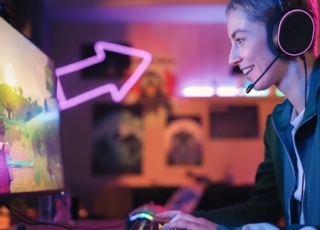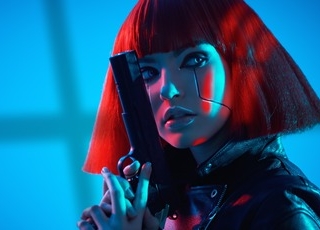Psychology Behind Designing Iconic Video Game Characters
- October 6, 2023
- Michał Dębek
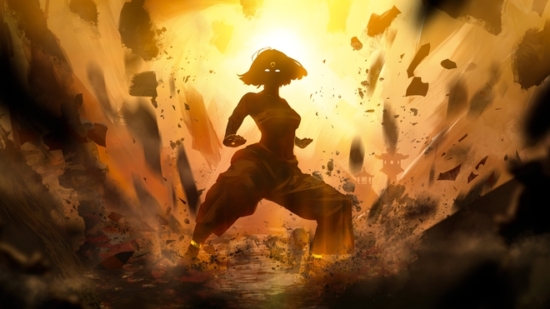
Every game developer dreams of creating a character that players will talk about and remember for years. And every game publisher hopes their character becomes a recognizable brand. It’s hard to find anyone who would disagree with these aspirations. Yet, many developers and publishers—our clients included—face the challenge of using psychology to design characters that resonate with players.
To help you navigate these dark, psychologically muddy waters, we’ve created a series of articles focused on developing memorable, and engaging characters. A great game character isn’t built solely on a strong context—an exciting setting, an engaging story, or striking visuals (though those matter too). We believe that the psychological foundations of character creation are what truly make these virtual beings relatable and unforgettable.
Try Evidence’s Roadmap to Designing Iconic Game Characters with Psychology
First, if you’re curious about which characters are particularly liked or disliked, we’ve got you covered in the current article. Thanks to our ongoing proprietary research, we can provide insights into players’ preferences, looking into the reasons behind their fondness for certain characters and aversions to others.
Second, understanding psychological identification is key to determining your character’s likability. This process involves players associating themselves closely with a character, and it’s key for understanding the psychological mechanisms that shape players’ preferences and decisions. To learn more about similarity identification, check out the article here. For insights on wishful identification, also tapping into compensation, you can find the article here.
Third, we’ll explore the phenomenon of projection—the act of transferring one’s thoughts, experiences, behaviors, and viewpoints onto game characters. By projecting their own feelings, desires, or past experiences onto a character, players might experience the game world more personally, making their in-game choices feel more meaningful.
Fourth, every gamer has a character with whom they deeply empathize. We’ll examine how to effectively evoke this empathy and whether it aligns with the goals of a game developer or publisher.
Fifth, we recognize that gamers desire agency in their favorite games—they want to shape their reality. Have you ever wondered what happens when this agency is taken away at a key moment? We’ll present theories on the impact of player choices and non-linear storytelling on emotional involvement and identification with a character.
Finally, we’ll explore archetypes—psychologically grounded character constructs. We’ll show how using archetypes strategically can avoid clichéd storytelling while creating characters that resonate with players.
Player-Favorite Characters
In September 2023, we launched the “Gaming Sense™ 2023: Characters” study, exploring the psychology of character design by surveying over a hundred mid-core and hardcore gamers from our playtester base to gauge their preferences for game characters.
Most-Liked Characters Identified Spontaneously
The top ten—actually eleven—most liked characters, as spontaneously declared by our participants and ranked by the number of recalls, were:
- Geralt of Rivia (The Witcher series, CD Project Red)
- Arthur Morgan (Red Dead Redemption 2, Rockstar Games)
- Ezio Auditore da Firenze (Assassin’s Creed series, Ubisoft Montréal)
- Dante (Devil May Cry series, Capcom)
- Commander Shepard (Mass Effect series, BioWare)
- Aloy (Horizon series, Guerilla Games)
- Nameless (Gothic series, Piranha Bytes)
- V (Cyberpunk 2077, CD Project Red)
- Nathan Drake (Uncharted series, Naughty Dog)
- Lara Croft (Shadow of the Tomb Raider, Eidos-Montréal),
- Kratos (God of War series, Santa Monica Studio)
The top 10 aided awareness list appears as follows (in order of scores from highest to lowest):
- Geralt of Rivia (The Witcher series)
- Arthur Morgan (Red Dead Redemption 2)
- Ciri (The Witcher 3: Wild Hunt)
- V (Cyberpunk 2077)
- Joel Miller (The Last of Us series, Naughty Dog)
- Connor (Detroit: Become Human, Quantic Dream)
- Max Payne (Max Payne series, Remedy Entertainment)
- Ellie (The Last of Us series)
- Clementine (The Walking Dead series, Telltale Games)
- Courier (Fallout: New Vegas, Obsidian Entertainment)
Why did Geralt, Arthur, and Ciri stand out in terms of the psychology of character design? Let’s break them down and take a closer look.
Geralt – The Hero by Chance
Our studies on the psychology behind character design show that Geralt ranks as the third most identified-with character among players, following V from Cyberpunk 2077 and Max Caulfield from Life Is Strange (Dontnod Entertainment). Notably, Geralt’s aspirational qualities make him stand out even further. In our wishful identification study—where players express a desire to emulate the character they admire most—Geralt secured the top spot. Players are drawn to his strength, resilience, and moral complexity. They admire him not only for who he is but for what he represents.
This dual connection—relatability and aspiration—cements his position as one of the most beloved figures in gaming.
Appeal through Competence and Mastery
From a psychological perspective of character design, Geralt satisfies fundamental needs outlined in self-determination theory, particularly competence through mastery.
Geralt is a skilled monster hunter and expert warrior. His ability to confront and overcome powerful enemies gives players a sense of accomplishment and empowerment. Successfully navigating the challenges Geralt faces makes players feel capable and in control. This reinforces their sense of growth and achievement. This aligns with research showing that gameplay fulfilling intrinsic needs for competence hightens enjoyment and engagement. Therefore, embodying Geralt, who successfully overcomes in-game challenges can boost self-esteem, making the gameplay feel more rewarding.
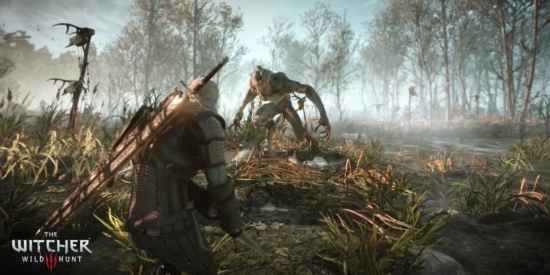
Geralt’s Moral Compass and Consistency
Geralt’s strong moral compass further strengthens his appeal. Despite living in a morally complex world, Geralt stays committed to his principles. He protects the innocent or makes tough, ethically fraught decisions. This adherence to his beliefs provides players with a sense of self-consistency, fulfilling a fundamental human need for a unified self-image.
Self-Expression and Identity Exploration
Guiding Geralt through morally significant choices also taps into psychological needs like autonomy. It gives players the chance to express themselves and explore their identity. According to Self-Determination Theory (SDT), self-expression is key to supporting autonomy, along with competence and relatedness—three essential human needs. By making moral decisions, players not only express themselves but also improve their well-being. As they guide Geralt, players project their values onto him, using his actions to express who they are or explore alternative perspectives in a safe space.
Geralt’s Visual Appeal
Geralt’s visual design also plays a major role in his appeal. In our other study on character attractiveness, Geralt was rated the most appealing male character, a result supported by psychophysiological reactions from participants. Indeed, Geralt’s appeal is hard to miss. His rugged features, charismatic voice acting, and detailed design exemplify the halo effect—a psychological phenomenon where a positive impression in one area influences perceptions of other traits. Geralt’s striking aesthetic makes him approachable and likable, even when his actions or decisions may seem flawed. This combination of visual appeal and character depth makes it easier for players to connect with him on multiple levels.
Arthur Morgan – The Outlaw with a Heart
Ciri – The Heroine of Growth, Attachment, and Identity
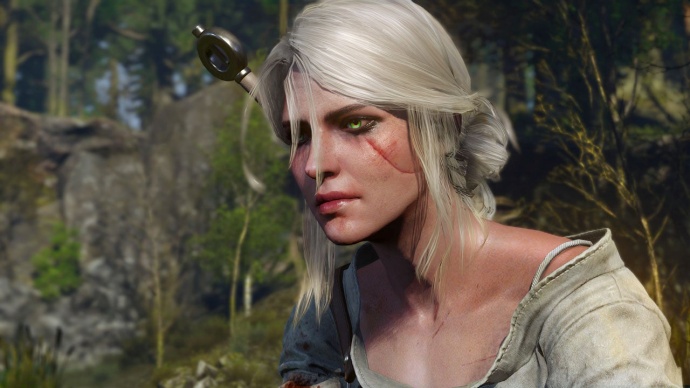
Emotional Bond through Shared Relationships
Probably one of the most significant reasons players deeply care about Ciri is her connection to Geralt. Players who form a strong emotional bond with Geralt—the character with the highest identification rates among all video game protagonists—naturally extend this attachment to Ciri. Through Geralt’s protective instincts and unwavering affection for her, players feel her importance on an emotional level, sharing his urgency to find her and experiencing his joy or heartbreak depending on her fate.
At the same time, Ciri earns her own place in players’ hearts through her direct interactions with the world around her. Whether helping children, standing up for the oppressed, or bravely facing powerful adversaries, she demonstrates compassion, strength, and independence. These moments allow players to connect with her on a personal level, making her a character they admire, root for, and feel deeply invested in.
Growing with Ciri
Ciri’s character creates a strong emotional bond with players, largely due to the parental dynamic with Geralt, who views her as his adopted daughter. As players tend to identify with Geralt, they naturally adopt his protective instincts and extend these feelings to Ciri, internalizing his emotions and motivations. Through experiencing Geralt’s perspective, players become deeply invested in Ciri’s well-being and success.
Ciri’s narrative arc deepens the emotional connection players feel toward her. Watching her evolve from a vulnerable, playful child into a confident, skilled warrior brings a sense of pride and attachment, as her growth feels both genuine and earned. At the heart of her appeal is this journey of self-discovery.
In our “Gaming Sense™ 2023: Characters” study exploring psychology of character design, we asked players what they valued most in character design. The most common response, chosen by 62% of those surveyed, was the ability to observe a character’s growth throughout the game—both in terms of personality and skill development.
“Throughout the game, I can observe the character’s growth: personality and skills development.”
This aligns perfectly with Ciri’s character arc, which centers on her growth. Players first meet her as a child, full of untapped potential. As the story unfolds, they watch her evolve—not only in combat ability but also in emotional maturity and self-awareness. Ciri’s transformation feels authentic, with each decision and experience shaping who she becomes.
Agency in Ciri’s Journey
Such a witnessing of this evolution becomes an emotional investment, as players feel involved in Ciri’s journey. Moreover, the game gives players agency over Ciri’s fate, allowing them to influence her journey through key decisions. Whether it’s comforting her during moments of sorrow or trusting her independence during critical situations, these choices create a feeling of co-authorship in her story. By guiding her path, players become personally invested in her growth, deepening their emotional connection to her.
Balance of Uniqueness vs. Belonging
Ciri embodies the “chosen one” archetype, marked by destiny yet standing out as a unique character. This taps into the universal desire for individuality and the pursuit of distinctiveness. People naturally long for a sense of uniqueness. According to Optimal Distinctiveness Theory, individuals strive to find a balance between these two desires. When people feel too much a part of the group, this can trigger a heightened need for uniqueness. On the other hand, feeling too separate can trigger longing for fellowship. Essentially, people seek to feel distinct enough to maintain a sense of individuality, while also feeling connected to others in a meaningful way. This dynamic helps explain why Ciri’s character is so appealing;
she embodies the perfect balance of standing out while still longing for connection.
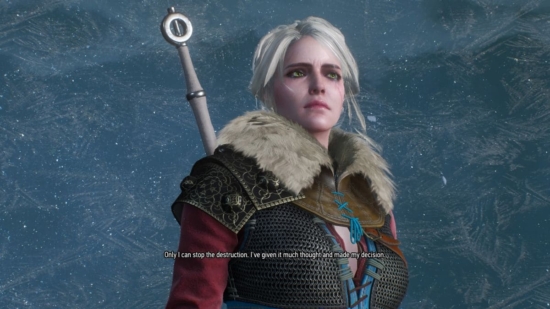
Self-Determined Despite Fate
Ciri, despite the weight of her destiny, is a powerful symbol of self-determination. However, she’s far from a flawless, idealized hero. Her physical and emotional scars add depth to her character. These flaws make her more relatable, as shown through the Pratfall Effect. Rather than being a perfect figure, Ciri faces setbacks, vulnerability, and self-doubt. Although her fate may be predetermined, she fights to control her future. She resists the expectations placed on her. This struggle to define herself reflects the internal conflicts many players experience in their own lives. Ciri’s determination to carve her own path resonates with players. It speaks to the human need for autonomy, as described by Self-Determination Theory (SDT).
Ciri’s Appearance
Lastly, Ciri’s design plays an important role in why she resonates so strongly with players. Her striking silver hair and the scar across her face give her a unique and memorable look that stands out among other characters. These details aren’t just visually striking—they also tell a story, symbolizing the challenges she’s faced and the strength she’s gained from them.
It’s hard to overlook that Ciri is also a visually striking character, and her appearance plays a role in how likable she is. As mentioned earlier, the halo effect often leads people to associate physical beauty with other positive traits, which only adds to her appeal.
Ciri scored the highest in physical attractiveness out of 69 characters, earning an impressive 95/100.
This attractiveness, while not the only factor, does correlate with her overall likability. When paired with her compelling personality and powerful storyline, Ciri’s design helps cement her as a character players are sure to remember.
Player-Least Favorite Characters
As we look at the most disliked characters, it’s important to clarify that we’re focusing on their likability, not the quality of their design. Character design—how a character looks, behaves, and interacts with the story—is a separate consideration. A character can be well-designed even if players dislike them. Ultimately, the intention behind creating a character plays a big role in how they are received.
Of the three most disliked characters, only Abby from The Last of Us Part II (Naughty Dog) wasn’t intentionally designed to be fully disliked. Her character was created with the goal of evoking empathy, though the execution led to mixed reactions, which we’ll discuss further in her section. The other characters in this group were designed with more polarizing traits, which naturally elicited negative responses from players.
However, it stood out that Abby was the only character in our set where the number of gamers who expressed “dislike” or “very much dislike” outweighed those who liked her.
Least-Liked Characters Identified Spontaneously
In total, gamers spontaneously identified 193 characters they disliked, with only Micah Bell being mentioned by more than a handful of people (10, to be exact). The rest were pointed out by 3-9 individuals. Here’s the breakdown of the most disliked characters, ranked in descending order of frequency:
- Micah Bell (Red Dead Redemption 2)
- Trevor Philips (Grand Theft Auto V, Rockstar Games)
- Big Smoke (Grand Theft Auto: San Andreas, Rockstar North)
- Ellie (The Last of Us series)
- Abby Anderson (The Last of Us Part II)
- Chloe Price (Life Is Strange series)
- General Shepherd (Call of Duty series, Activision Blizzard)
- Lae’zel (Baldur’s Gate 3, Larian Studios)
- Professor (The Witcher)
- Roman Bellic (Grand Theft Auto IV, Rockstar North)
- Abby Anderson (The Last of Us Part II)
- Ethan Mars (Heavy Rain, Quantic Dream)
- Jason Brody (Far Cry 3, Ubisoft Montréal)
- Nameless Boy (Limbo, PlayDead)
- Isaac Clarke (Dead Space series, Visceral Games)
- The Sole Survivor (Fallout 4, Bethesda)
- Aloy (Horizon series)
- Dragonborn (The Elder Scrolls V: Skyrim, Bethesda)
- Alan Wake (Alan Wake series, Remedy Entertainment)
- Corvo (Dishonored series, Arkane Studios)
What psychological aspects of these characters’ designs contributed to their being disliked compared to others? Let’s take a closer look at the factors that may have played a role in their negative reception.
Micah Bell – The Despicable Outlaw
The character of Micah Bell is undeniably one of the most disliked one in Red Dead Redemption 2, even among other characters in the game’s universe—and for good reason. His role as the perfect antagonist is a testament to strong character design.
Unlike some of the other less liked characters, Micah was intentionally crafted to be hated.

Antagonistic by Nature
Micah’s opposition to Arthur Morgan plays a key role in why he’s so despised. Arthur may make mistakes and take part in morally questionable actions, but he struggles with them and feels guilt. He is ultimately a character who shows remorse, introspection, and a moral compass—even in his darker moments. Micah, however, delights in the suffering he causes and shows no remorse. He constantly belittles those around him, undermining their worth and suggesting they’re foolish or useless. Micah’s complete lack of empathy and his enjoyment in causing harm make him the antithesis of Arthur, a character players deeply connect with.
When Micah harms Arthur or others, it’s not just a plot device; it feels like a personal attack on a character they care about. This triggers empathetic anger—a psychological response where players’ empathy for the victim leads to anger towards the perpetrator. Players not only empathize with Arthur but also feel a moral obligation to stop Micah’s actions. This strong empathetic anger deepens players’ emotional investment in the story and intensifies the sense of injustice as they witness Micah’s manipulations.
Betrayal and Injustice
Micah’s behavior sharply violates moral and social norms, triggering a strong psychological response. Research shows that when negative events deviate from the norm, they increase empathy for the victim and anger towards the offender. In Micah’s case, his actions—such as betrayal, manipulation, and cruelty—often seem excessive. This is especially true given the close bonds within the gang. His violations of these norms heighten players’ empathy for characters like Arthur and fuel anger towards Micah. His behavior contradicts the values of loyalty, camaraderie, and respect that Arthur and the others hold dear. The more Micah manipulates and deceives, the more his actions seem out of place, further intensifying players’ emotional reactions.
Prolongedly Hated
Unclear Motives Fueling Disdain
Psychologically, humans tend to seek patterns and coherence in others’ behaviors. Understanding a character’s motivations helps players frame their actions within a context, enabling them to make sense of why they do what they do. This understanding can lead to feelings of sympathy, forgiveness, or at least a more nuanced perspective on their behavior. Conversely, incoherent or unclear narratives about others’ actions can generate aversive feelings in individuals perceiving them, leading to more negative social evaluations. In Micah’s case, his actions seem driven by a chaotic mix of selfishness, manipulation, and sadism, with no apparent larger goal. This lack of clear motivation leaves players feeling confused and frustrated. Unable to grasp why Micah behaves the way he does,
it becomes difficult to view him as anything more than a source of suffering.
Struggle to Empathize
As stated above, empathy is most often sparked by the ability to see a character’s behavior as part of a larger, relatable emotional or psychological framework. However, in Micah’s character design, his unexplained malice creates a significant psychological barrier. Players are not only unable to connect with him, but they also experience heightened frustration and antagonism.
The lack of clarity around Micah’s motivations makes it difficult to view him as a complex character, reinforcing negative feelings. Without understanding his inner workings, players are left with negative emotions—anger, disgust, and a desire for retribution.
This makes it nearly impossible to empathize with him.
As a result, players are more likely to see him as irredeemably evil, deepening their disdain and intensifying their desire for him to face consequences.
Abby Anderson – The Unwelcome Protagonist
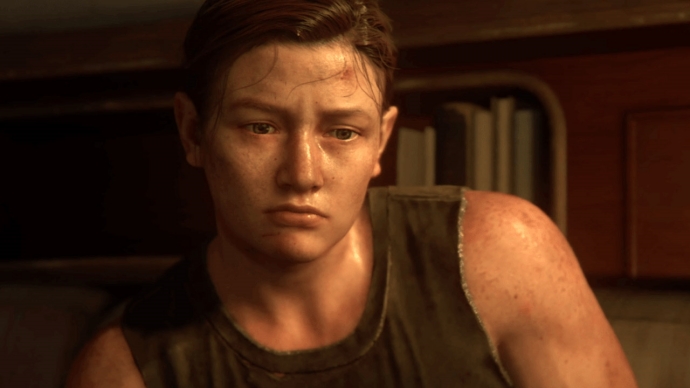
The Last of Us Part II sparked intense debate, particularly around Abby, one of the game’s most polarizing characters. The narrative aimed to challenge players’ perspectives, exploring themes of revenge and empathy. However, Abby’s role and introduction triggered strong psychological and emotional reactions. As a result, she became a focal point of widespread dislike and heated discussions.
Empathy and Parasocial Bonds
One major reason Abby is disliked stems from players’ long-term parasocial relationship with Joel, established in the first game. Parasocial relationships are one-sided emotional attachments formed with characters. Players spent countless hours with Joel, witnessing his vulnerabilities, moral struggles, and growth, which created deep empathy for him. Players rationalized his actions—like saving Ellie at the cost of humanity’s potential cure—because they understood his pain as a grieving father who had already lost one daughter.
In contrast, Abby enters the narrative as a disruptive force. She immediately kills Joel in a cold and brutal manner. The lack of fanfare or a redemption arc for Joel intensified players’ sense of betrayal. They felt forced to watch a beloved character die at the hands of someone they didn’t know or care for. From a psychological standpoint, this shattered the parasocial bond, leaving players grieving and directing their anger onto Abby.
The game’s climax, where Ellie chooses to spare Abby instead of exacting revenge, also subverted traditional video game conventions. This moment challenged players expectations. It deprived them of the catharsis typically associated with avenging a beloved character’s death. Players invested in Ellie’s quest for revenge found the decision to spare Abby unsatisfying. It undermined their emotional journey, denying them the closure they had hoped for. This narrative twist, while thematically rich, left some feeling unresolved, compounding their dislike for Abby.
The Role of Moral Dissonance
Abby’s actions in the first act of the game created significant moral dissonance for players. The concept of cognitive dissonance explains the discomfort people feel when their beliefs or values are challenged. Joel was framed as the protagonist in the first game, with his morally ambiguous actions often justified by his love for Ellie. Abby, however, acts out of revenge for Joel’s decision to kill her father, the doctor who intended to sacrifice Ellie to create a cure for Cordyceps. While her motivations are morally sufficient, they clash with the player’s pre-established biases toward Joel.
This conflict between empathizing with Joel’s protective instincts and recognizing Abby’s justified hatred for him creates psychological discomfort. However, because players had already justified Joel’s actions, they found it harder to sympathize with Abby’s pain. The human tendency to favor in-group members (as states the social identity theory; in this case, Joel and Ellie as the “protagonists”) over perceived outsiders (Abby) further exacerbated this dynamic.
Narrative Disruption and Forced Perspective
The relationship between players and characters in narrative games like The Last of Us Part II can be explained through disposition theory. This theory suggests that players’ enjoyment is influenced by their emotional alignment with characters and their fate within the story. Abby’s introduction as Joel’s killer immediately created a stark conflict with the loyalties players had formed during the first game. As a result, players developed a strong negative affective disposition toward her. Joel, a beloved protagonist, was killed off suddenly and brutally, leaving players grieving his loss and emotionally invested in Ellie’s quest for revenge.
This emotional investment made the game’s mid-point twist, where players are required to control Abby, a jarring experience. After spending so much time with Ellie, seeking vengeance against Abby, players were suddenly forced to step into the shoes of the character they had come to despise. Research shows that such abrupt shifts can provoke resistance and negative emotions. Players felt forced to empathize with Abby despite their lingering grief and anger over Joel’s death. For many, the lack of agency in deciding how to engage with Abby intensified this frustration. Such a situation aligns with reactance theory, which suggests that individuals resist when they feel their autonomy is undermined. In this case, the game’s insistence on presenting Abby as a protagonist overrode the players’ choice to resent her.
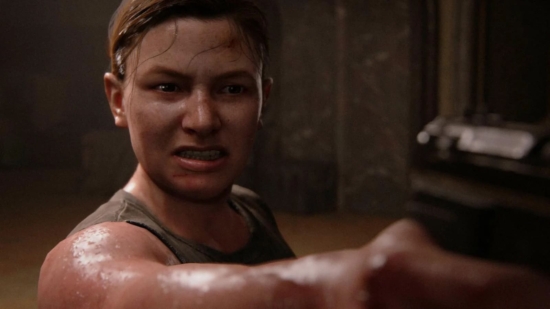
Unsuccessful Empathy Efforts
The game’s design aimed to generate empathy for Abby by revealing her backstory and psychological motivations, such as her intense desire to avenge her father’s death at Joel’s hands. However, for many players, this effort was insufficient. Researchers argue that the abrupt shift in perspective, paired with Abby’s central role in Joel’s death, created a form of ludonarrative dissonance. Players struggled to reconcile their established emotional bond with Joel and Ellie with the game’s demand that they embody Abby. This dissonance amplified their frustration, leaving them resistant to engaging with Abby’s story on the terms the game presented.
Physicality and Gender Bias
Abby’s muscular build became a significant point of contention among some players, with critics arguing that her physique was unrealistic for a woman surviving in a resource-scarce, post-apocalyptic world. This perception sparked accusations of “virtue-signaling” against the game’s developers and fueled debates about the intent behind her design. For some players, this perceived visual incongruence further alienated them from her character, reinforcing their dislike and complicating efforts to empathize with her.
These criticisms also reflect broader cultural biases surrounding gender and physicality in media. Abby’s muscular, hyper-competent persona challenges traditional gender norms for female protagonists, which some players found jarring. Rooted in societal discomfort with women who defy conventional portrayals of femininity, these reactions expose the influence of gender stereotypes on audience responses to characters like Abby.
Trevor Philips – The Embodiment of Chaos
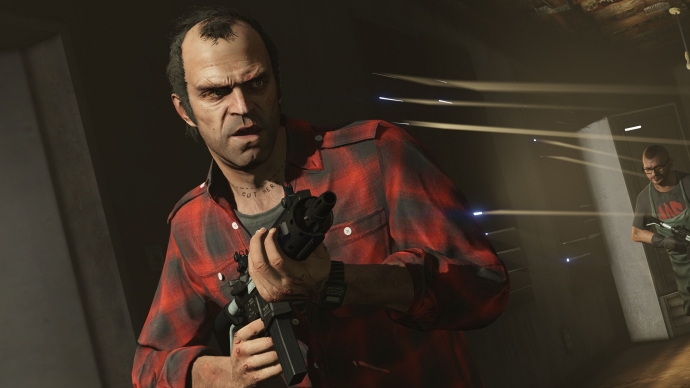
The design of Trevor Philips intentionally pushes the boundaries of what players expect from a playable character in video games. Designed as violent and psychopathic, in Trevor’s very first scene, he murders Johnny Klebitz, the beloved protagonist of GTA IV: The Lost and Damned (Rockstar Games), by stomping on his head before wiping the remains off his boots. This sets the tone for his character, making him almost immediately primed to be hated.
Trevor stands apart from the other protagonists in Grand Theft Auto V. Unlike Michael and Franklin, who are driven by clear moral codes or personal motivations, Trevor lacks a moral compass. He acts impulsively and for his own amusement. His chaotic lifestyle, vulgar behavior, and distorted sense of justice make it hard for players to relate to him. Trevor’s aggression stands in sharp contrast to Michael’s family-driven goals and Franklin’s aspirations for a better life. This further alienates him, making it difficult for players to sympathize with his character.
It’s important to note that Trevor’s character was intentionally designed to be psychologically repulsive. Most players dislike him, but some find his character intriguing and entertaining because of these controversial elements. In fact, we know such individuals. Player preferences for such characters can vary widely. These preferences are influenced by personal tastes, needs, and moral sensibilities.
Walking in the Villain’s Shoes
Embodying a character like Trevor during gameplay can be psychologically uncomfortable for many players. Mainly due to the moral dissonance it creates. Research suggests that players experience guilt when engaging in unjustified virtual violence, especially when controlling a morally reprehensible character. This discomfort arises from moral disengagement. It is a psychological process where individuals try to justify unethical behavior to reduce the emotional distress of their actions. Trevor frequently engages in violent and immoral acts, such as brutal killings, torture, and bullying. This forces players to act in ways that conflict with their personal values. It challenges their ethical standards and creates discomfort during gameplay. This makes Trevor difficult for many players to relate to. As our study showed,
Trevor was the hardest character for players to identify with, scoring -82/100,
even lower than Agent 47, the cold-blooded professional assassin, who scored -59/100. This highlights how challenging it is for players to connect with a character whose actions are so extreme and deviant.
Controlling Trevor can be uncomfortable because players are actively involved in his actions. They don’t just observe him; they make decisions as Trevor. This forces them to adopt his perspective, which can lead to negative emotions like guilt, anxiety, or distress. Even though the violence is virtual and has no real-world consequences, the emotional impact can feel real. Players become deeply immersed in both the game’s narrative and their actions. This makes the experience of embodying Trevor more intense and psychologically challenging.
The Lack of Remorse
Trevor’s complete lack of remorse for his actions further compounds this discomfort. Many video game characters experience self-reflection or regret for their morally questionable decisions. However, Trevor remains indifferent to the consequences of his violence. He doesn’t reflect on his behavior or show any accountability. This lack of introspection creates a psychological barrier for players. Without a moral framework to justify his actions, players may feel compelled to engage with Trevor in ways that conflict with their own ethical standards.
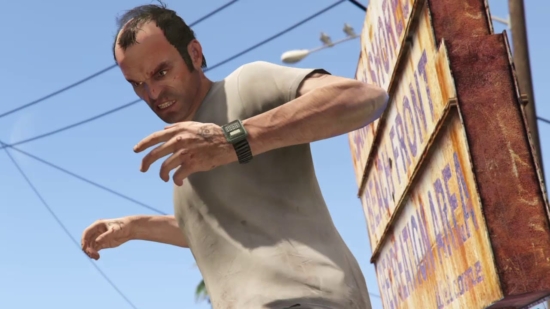
Despite the overwhelmingly negative perceptions of Trevor, some players appreciate the very traits that others find abhorrent. Psychologically, this can be explained by catharsis theory. It suggests that engaging in aggressive or violent actions within a controlled environment can release pent-up emotions and stress. This type of gameplay offers a “safe aggression” or displaced aggression, where players project their real-world anger or dissatisfaction onto the character in a way that doesn’t have real-life consequences.
Trevor’s over-the-top persona and his unrestrained behavior may provide players with psychological release. His extreme actions allow them to indulge in destructive behavior they would never consider in real life. For players seeking cathartic relief, the game serves as a means to vent and release tension in the fictional world of GTA. For these individuals, Trevor’s extreme actions may serve as a coping mechanism. It can provide a temporary psychological escape from their daily stresses or disappointments.
Trevor as a Reflection of In-Game Freedom
Therefore, in a way, Trevor becomes an exaggerated reflection of the liberty that GTA offers to players: the ability to act without regard for societal rules, and to explore the boundaries of their aggression and frustration in a virtual space. This freedom can be especially appealing when players are experiencing stress or dissatisfaction in their own lives. For these individuals, Trevor’s absurdity and violence may become entertaining, even endearing. His extreme nature provides an outlet for their frustrations and offers temporary psychological escape.
*
**
Want to quote thoughts from this article? Do it elegantly:
Dębek, M., Król, M., & Zagórski, D. (2023, October 10). The psychology behind crafting memorable video game characters: Strategies for engaging players. Try Evidence. [link]


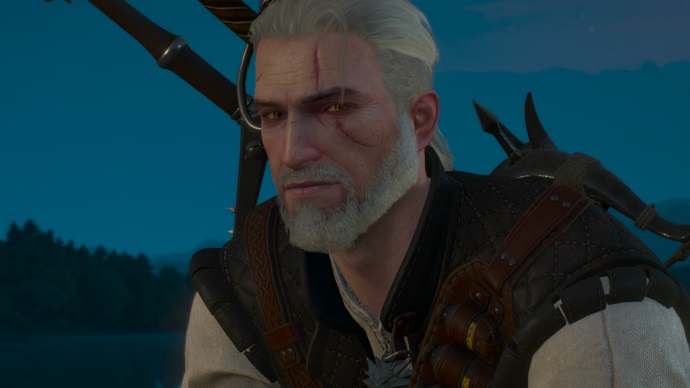
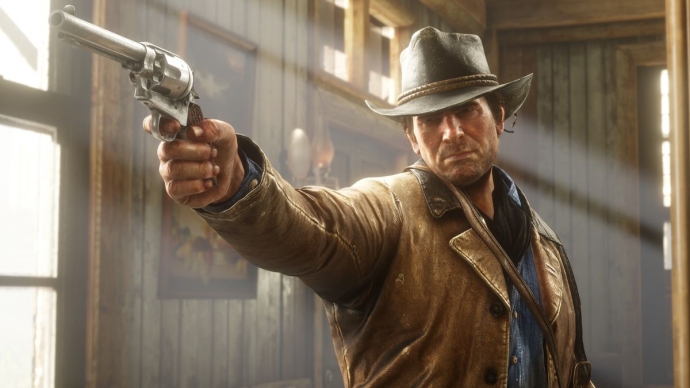
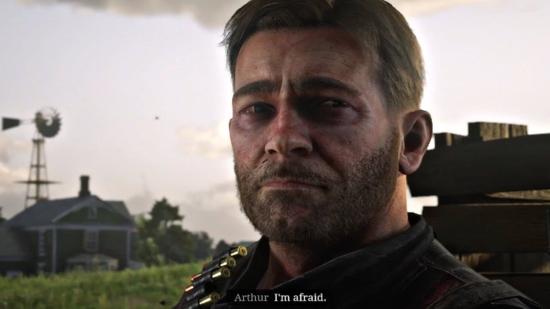
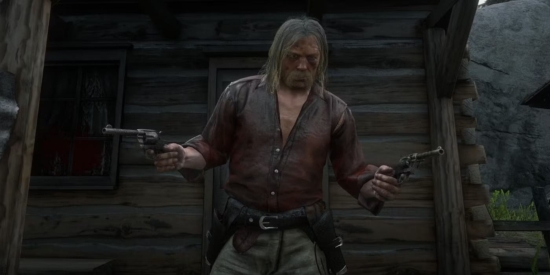

 (4.57)
(4.57)

